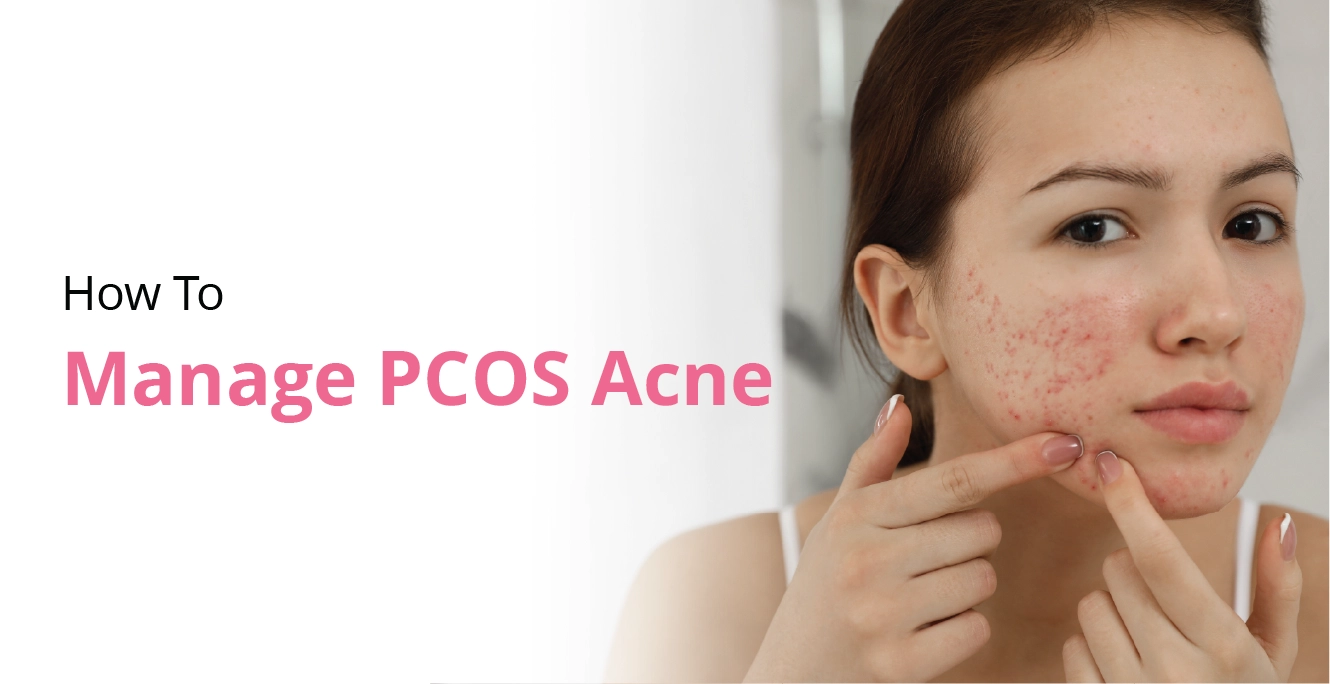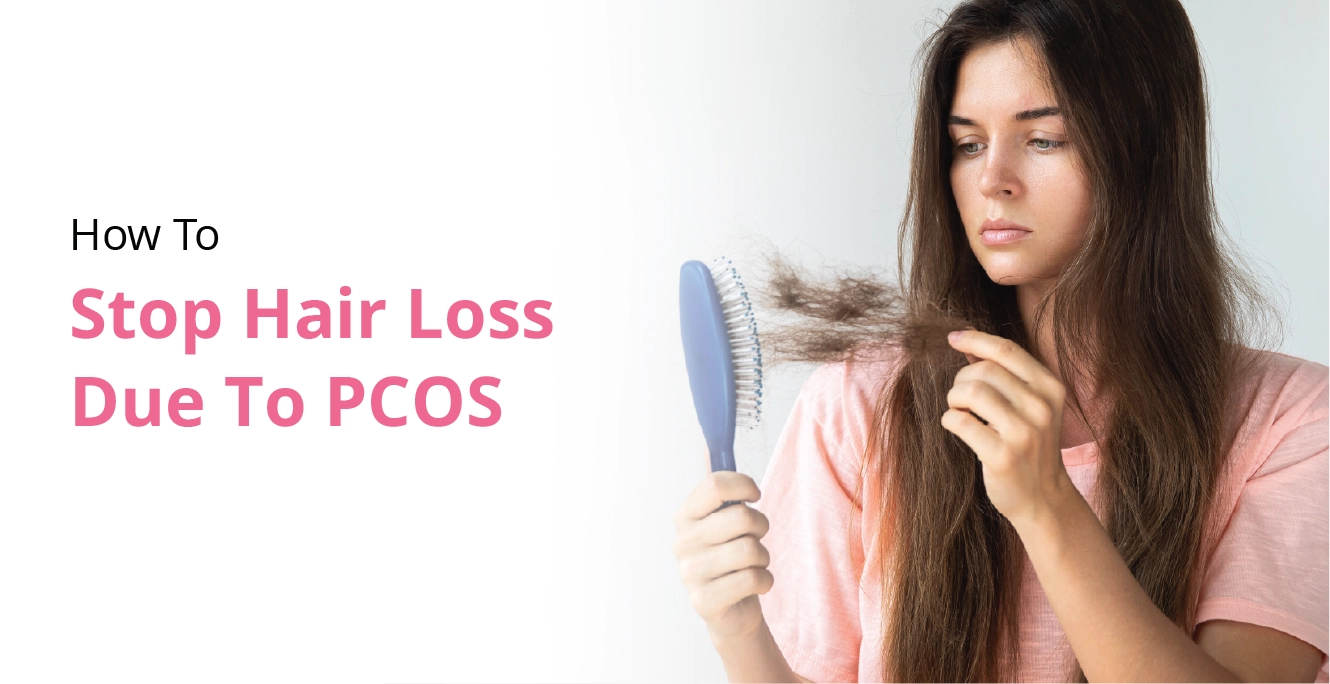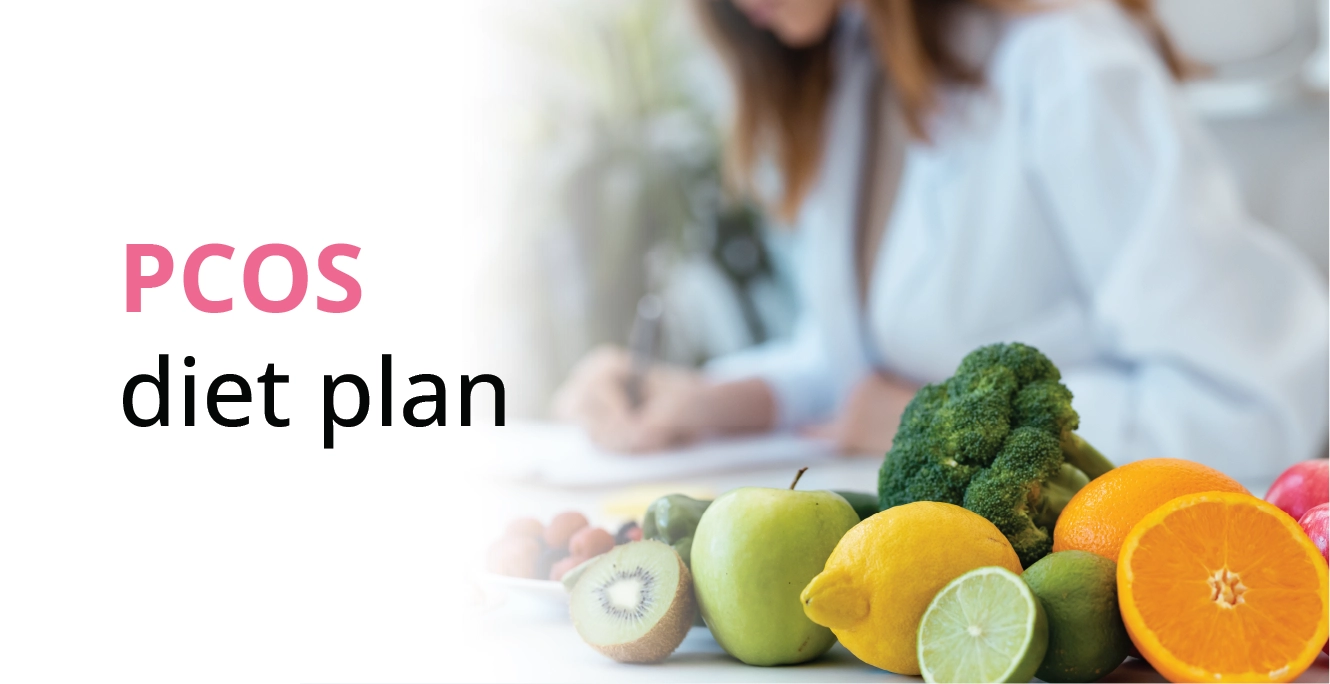
What is PCOS (Polycystic Ovary Syndrome)?

Table of Contents
PCOS, polycystic ovarian syndrome, is a complicated hormonal disease that occurs in women. It is one of the most prevalent endocrine disorders that impact women’s quality of life. In the reproductive years, it affects 4% to 20% of women globally. According to information from the World Health Organization (WHO), PCOS affects about 116 million women worldwide. Currently, PCOS is diagnosed in 1 in 10 women.
What is PCOS (Polycystic Ovarian Syndrome)?
The term “polycystic” literally means “many cysts,” and cysts are tiny fluid-filled sacs that typically form on the border of the ovary. These cysts, also known as follicles, are filled with immature eggs. A person with PCOs may not have regular periods, or their periods may continue longer than usual. Additionally, a person’s body may contain extremely high levels of the hormone androgen. The name is a misnomer since not everyone with PCOS has ovarian cysts, and not every ovarian cyst is a sure marker of PCOS. Instead, PCOS is an endocrine and metabolic illness that affects the body in ways other than the ovaries. There are three main characteristics of PCOS:
- High level of male hormones
- Cysts in the ovaries (in rare cases, cysts don’t form in the ovaries)
- Irregular periods
Symptoms of PCOS
Some women start seeing symptoms around the time of their first period. Others only discover they have PCOS after they’ve gained a lot of weight in short span of time or they’ve had trouble getting pregnant.
The most common PCOS symptoms are :
- Irregular periods – A lack of ovulation prevents the uterine lining from shedding every month. Some women with PCOS get fewer than eight periods a year.
- Heavy bleeding – The uterine lining builds up for a longer period of time, so the periods you get can be heavier than normal.
- Unusual Hair growth – More than 70 per cent of women with this condition grow hair on their face and body — including on their back, belly, and chest . Excess hair growth is called hirsutism.
- Acne – Male hormones can make the skin oilier than usual and cause breakouts on areas like the face, chest, and upper back.
- Weight gain – Up to 80 percent of women with PCOS are overweight or obese.
- Male-pattern baldness – Hair on the scalp gets thinner and falls out.
- Darkening of the skin – Dark patches of skin can form in body creases like those on the neck, in the groin, and under the breasts.
- Infertility – If the woman is suffering from severe PCOS, there is a possibility she will face difficulty in getting pregnant.
Causes of PCOS
Doctors and researchers do not exactly know the causes this disorder. Therefore, it’s advisable to get checked early on when you think you’re beginning to show signs of PCOS. It is said that insulin resistance, genes, and inflammation have all been linked as primary causes of this disease.
- Insulin Resistance : More than 70% of women suffering from PCOS have displayed insulin resistance. This implies that the body’s cells aren’t able to process insulin properly. When the body is unable to get enough insulin, it demands more insulin leading to the pancreas generating more than necessary. This excess insulin triggers ovaries to produce androgens.
- Genes : Due to the clustering of the disease among families, scientists believe that it’s highly associated with one’s genetic composition. If your immediate family members have had PCOS in their lifetime, there is a chance that you might have it as well. We don’t yet know which specific gene is the reason, it could very well be a cluster of genes.
- Inflammation : Higher levels of inflammation in the body is also commonly seen among women with PCOS.
How to Diagnose PCOS?
There are a couple of different criteria and methods to diagnose PCOS.
- Rotterdam criteria : Under this criteria, PCOS is diagnosed based on the presence of irregular ovulation, high androgens (male sex hormones), and/or polycystic ovaries.
- Androgen Excess and PCOS Society (AE-PCOS) : PCOS cannot be diagnosed unless both high androgens and ovulation dysfunction are present. The AE-PCOS criteria do not permit diagnosis based only on irregular ovulation and polycystic ovaries.
Treatment for PCOS
Diet and lifestyle: Treatment usually begins with a carefully chosen diet, healthy lifestyle choices, and exercise. Losing 5 to 10 percent of your body weight can help regulate menstrual cycles and improve symptoms.
Studies comparing diets for PCOS have found that low-carbohydrate diets are effective for both weight loss and lowering insulin levels. A low glycemic index (low-GI) diet that gets most carbohydrates from fruits, vegetables, and whole grains helps regulate the menstrual cycle better than a regular weight loss diet.
Diet combined with moderate exercise helps immensely in lowering body weight and regulating one’s metabolism.
To help you ovulate, your doctor might recommend :
- Clomiphene (Clomid) : This oral anti-estrogen medication is taken during the first part of your menstrual cycle.
- Letrozole : Now commonly used as the first-line treatment.
- Metformin (Glucophage, Fortamet, others) : This oral medication for type 2 diabetes improves insulin resistance and lowers insulin levels. If you don’t become pregnant using clomiphene, your doctor might recommend adding metformin. If you have prediabetes, metformin can also slow the progression to type 2 diabetes and help with weight loss.
- Gonadotropins : These hormone medications are given by injection.
Doctors might also recommend other medicines to reduce excessive hair growth.
How to Get Pregnant with PCOS?
Living with PCOS can feel frustrating, especially when irregular periods make it harder to conceive. Many women wonder how to get pregnant with PCOS and fear their chances are slim. The truth is, with the right treatment and guidance, pregnancy is very much possible. Options like IVF have helped countless women with PCOS overcome fertility challenges and start their journey to parenthood with hope and confidence.
Some of the necessary steps that doctor usually suggests on How to Get Pregnant with PCOS are :
- Take care of your lifestyle: Eating healthy (whole grains, proteins, and low-GI foods), staying active, and practicing yoga or meditation can keep your hormones balanced.
- Manage weight wisely: Even small weight loss can bring back regular ovulation, improve egg quality, and make fertility treatments work better.
- Know your fertile days: Simple tools like ovulation kits, period-tracking apps, or even monitoring your body temperature can guide you.
- Get medical support if needed: Doctors may suggest medicines like Clomiphene, Letrozole, or Metformin to help regulate cycles.
- Explore fertility treatments: If natural methods don’t work, options like IUI or IVF can provide strong chances of conceiving with expert guidance.
What are the complications of PCOS?
PCOS can lead to complications, some of which may include:
- Recurrent miscarriages
- Increased chances of premature birth
- High risk of infertility
- Heavy bleeding during menstruation
- Irregular periods
Tips to Manage PCOS and Improve Fertility
A few dietary and lifestyle changes can help you boost fertility along with managing symptoms of PCOS are:
- Add zinc-rich foods such as nuts, dairy items, meat, potatoes, and grains.
- Include folic acid-rich foods like broccoli, Brussels sprouts, kidney beans, chickpeas, kale, cabbage, and spinach.
- Include iron-rich foods such as red meat, shellfish, pumpkin seeds, spinach, wheat bread, and cereals.
- Incorporate healthy fats into your diet, such as walnuts, corn, chia seeds, flaxseed oil, and olive oil.
- Eat timely while maintaining the portions of the meal
- Don’t skip your meal during the day
- Avoid unhealthy, junk, and oily food
Bottom Line
PCOS is a very common condition found in women nowadays. It can be a result of a sedentary lifestyle and unhealthy diet intake. The above article gives you a complete idea about PCOS from what it is to the treatment options for the same. If you are diagnosed with PCOS and planning a pregnancy but facing difficulty, consult our fertility expert today for free by calling in the given number or filling in the required details in the ‘Book Your Appointment’ form for a call back from us.
Frequently Asked Questions (FAQs)
-
How can I stop the signs of PCOS?
PCOS symptoms cannot be prevented from appearing. The best course of action, however, is to consult a specialist and look for suitable instructions to manage them effectively. They may guide you through lifestyle modification and other necessary medications as a course of action to improve your quality of life.
-
Does the fact that I have irregular periods suggest that I have PCOS?
No, a bad diet, a change in lifestyle, or other factors are common reasons for irregular periods. However, PCOS might occasionally be one of the causes of irregular periods. Therefore, it is best to consult with your gynecologist to identify the precise underlying cause and receive the appropriate care.
-
Can PCOS affect my ability to conceive?
Yes. Your fertility may be impacted by your PCOS condition due to hormonal abnormalities. Additionally, it may make it more difficult for you to conceive naturally. But you can always get connected to a fertility specialist in order to receive expert advise and the possibility of stating a family.
-
Is PCOS curable?
No, it isn’t. It can be treated but not cured. Treatment can help improve the condition depending on the symptoms. In many people with PCOS, losing weight can help them feel better.
Our Fertility Specialists
Related Blogs
To know more
Birla Fertility & IVF aims at transforming the future of fertility globally, through outstanding clinical outcomes, research, innovation and compassionate care.
Had an IVF Failure?
Talk to our fertility experts

 Our Centers
Our Centers
















